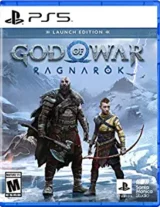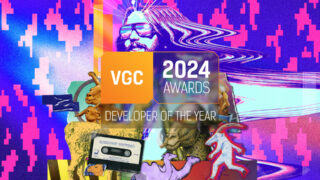Composers tell us why developers still don’t take game music seriously
Incorrect credits and poor accessibility are just some of the issues still affecting composers in 2021

Whether it’s the thousands of video game music playlists on YouTube, tracks from League of Legends surpassing 200m plays on Spotify, or viral Tik-Tok trends landing the Coconut Mall theme from Mario Kart in the charts, video game music has never been in such high demand.
This shouldn’t come as a surprise to publishers; the demand for video game music has always been there. Physical game soundtracks have been a thing since the ‘80s, after all, but the way that music is consumed – and distributed as a result – has changed significantly in the last decade.
This is due in no small part to the growing popularity of digital service providers (DSPs) such as Spotify, as well as platforms such as Twitch and Tik-Tok where video game music is played over videos or performed live. These changes mean the correct handling and management of music has never been more important, particularly when it comes to metadata.
In a music context, metadata is all of the key information used to identify and present audio content, listing everything from track names and tempo to songwriters and performers. It tells us who did what on a specific track. It allows us to learn the names of the other musicians that worked on an amazing orchestral score. But most importantly, it ensures musicians are fairly credited and compensated for their work.

Unfortunately, messy metadata is one of the biggest issues affecting fans and video game composers, something that all of the composers we spoke to were in agreement with. One acclaimed composer, who has scored music for major video games, films and TV shows but wishes to remain anonymous, told us “good metadata only exists in about 10% of the industry.”
“There are so many [game] companies that just don’t do it [properly] because they don’t know how to do it,” they told VGC. “They’re not in the habit of getting proper cue sheets from composers. This happens in TV, radio and film, but not in games.”
A cue sheet is a document that lists all of the music used in a piece of media, as well as who’s responsible for it. If composers are registered with a performing rights organisation (PRO) and their contract allows them to collect performance royalties, these cue sheets are an important part of allocating royalties because they show who did what on a specific track and as a result, who needs paying.
Unfortunately, our source said “the only people that request these are the top-tier [game] publishers because they’re the only ones involved in the real publishing of the music. This is really important on a game where there are multiple composers, especially when it comes to royalty shares.”
Game music’s royalties mess
Royalty shares are a heated debate in the wider music industry, so much so that Sir Paul McCartney, Kate Bush and 154 other artists have just signed a letter to the prime minister calling for a change in the way payments are made by streaming companies.
Music rights are complicated enough, especially as music copyright laws are managed differently across the world, but a lack of understanding around the business of music from game publishers and studios means many composers aren’t being fairly compensated for their work.
The main issue here is buyouts. A buyout is an agreement where the party commissioning the work, in this case, the video game company, retains all of the rights to the music created for the game. And in the case of video games, this would mean the composer usually can’t earn any additional revenue from the music they’ve composed (unless their contract states otherwise).
“There are so many [game] companies that just don’t do it [properly] because they don’t know how to do it. They’re not in the habit of getting proper cue sheets from composers. This happens in TV, radio and film, but not in games.”
Buyouts have become another major talking point in the music industry that’s led to The Ivors and Musicians’ Union launching Composers Against Buyouts, a campaign aiming to change the way composers are commissioned.
The same anonymous composer we spoke to claimed that even if composers do agree to a buyout, no company can legally stop them from earning royalty payments through their writer’s share – if their work is registered with a PRO.
“What these buyouts do is stop the composers earning royalties, and most of the game companies are stupid because they think they have to pay the royalties, but they don’t. It’s the collection societies (PROs) that pay the artists, and if [platform holders] published their music properly, they’d earn their publishing share and the writers would earn their writer’s share. It’s a win-win situation.”
That means video game companies can actually make money if they’re willing to pay a license fee and register with the relevant PRO in their territory so they can collect royalty shares.
Amazingly, Sony Computer Entertainment Europe is the only games company to do this. The PlayStation firm entered into a licensing agreement with PRS for Music in 2014, which means both the company and its composers earn royalties on video games downloaded via the PlayStation Store in Europe, paid to them by PRS for Music.
This decision is pretty praise-worthy considering it’s the only such licensing deal of its kind to exist in the video game industry. At the time, PRS announced its licensing team was “currently in negotiation with other games industry leaders” to “work towards similar deals”. We’re yet to see the likes of Nintendo or Microsoft work towards these similar deals, but they probably should, in Europe, at least.
“Platform holders are effectively broadcasters and need a PRO license,” our source told us. “If you’re a software only publisher, you don’t need one, it’s only when hardware comes into play and there’s still a lot of confusion around this. Under EU law, a platform holder is seen as a broadcaster, because European law denotes the download or sale of a game as a broadcast, which composers can get royalties for.
“What’s happening at the moment is you’ve got companies like Microsoft saying they don’t need a license because they’re doing buy-out agreements which mean their music is owned and pre-cleared. There’s no way that’s possibly true, because let’s say they get an EA title with a bunch of licensed tracks in it: Microsoft doesn’t own Billie Jean or any other music that features in those games. They simply don’t wanna pay the license fee, just like Twitch.”
Game music: The crediting issue
Even though these licensing fees sound complicated, you’re probably already familiar with how they work, especially if you’ve ever worked in the hospitality sector. Whether you’re a bar, cafe, pub, venue or office, you need a license to play music on commercial premises, whether it’s from a radio or whatever else.
Of course, these licenses and tariffs vary significantly depending on the use of music and the scale of the licensee. For a company like Sony or Nintendo, that license fee would be pretty significant – possibly six figures – but platform holders do of course get some of that money back from their publisher’s share.

Buyouts are particularly bad news for composers and game publishers when the music created for a game isn’t used in merchandising opportunities afterwards. By doing that, not only are they preventing composers from earning their writer’s share, but the game companies don’t do anything with it either so no one’s making any money.
Publishers doing nothing with video game soundtracks is an issue that Grant Kirkhope, a composer best known for his work on some of the N64’s best-selling titles such as Goldeneye, Banjo-Kazooie and Perfect Dark, is well aware of.
You’ll struggle to find the soundtracks for many of his titles to stream online, although some have enjoyed physical releases as vinyl records thanks to the record label Iam8bit. The lack of accessibility around some of Kirkhope’s music has left him frustrated, especially as he’s familiar with the issues around miscrediting.
“I just don’t think some companies take game soundtracks very seriously, and it’s a bit of a pain in the ass because it’s like, you’ve done the work, the least you can do is credit me,” he told VGC. In his 25-year career composing music for games, Kirkhope says he hasn’t received a single request for a cue sheet.
A quick look through Discogs shows that Kirkhope wasn’t officially credited on many of the earlier CD soundtracks that Nintendo was publishing in the ‘90s. But this is an issue that many composers are still battling with today, and not just on official soundtrack releases.
“I’ve known composers on major games not get credit for what they’ve done. And I don’t think that’s right,” he continued. “There was a major release where the main composer got some other composers to help him out and [he] said that he’d told the company to credit the other composers when the soundtrack comes out. The other guys didn’t get credited at all, either on the soundtrack or in the credits. I’ve known that happen a few times.”
Tommy Tallarico, who has composed music for over 300 video games and is also the founder of the Game Audio Network Guild and Video Games Live, believes the easiest way for companies to address the issues around music distribution is to follow in the footsteps of EA, Riot Games, Sony and Activision by setting up their own music divisions, handled by experts that understand music rights.
“I just don’t think some companies take game soundtracks very seriously, and it’s a bit of a pain in the ass because it’s like, you’ve done the work, the least you can do is credit me”
“EA, Activision, Sony and many more have done just that,” he told VGC. “They said let’s take music seriously. And until more companies start doing that – protecting their IP while making money off it at the same time – they’re at a massive disadvantage.”
Tallarico takes particular grievance with YouTube, which he believes is a hotbed for music piracy. This in turn boils down to the fact that so many video game soundtracks are not being officially released, so fans of those scores are taking it upon themselves to get that music online. And while this is great for fans of video game music, it can, understandably, be pretty frustrating to see videos of your music racking up millions of plays while you’re not earning a penny.
“There are hundreds of millions of views on Earthworm Jim music that I 100% own and YouTube won’t allow me to collect a single penny from it,” Tallarico said. “YouTube needs to get their house in order. It’s easier for them to say, ‘okay, sue us,’ than it is for them to try and handle the massive amounts of copyright laws that are being disgustingly broken on the platform millions of times every day. That’s for all musicians, of course, but video game composers are definitely getting the worst of it.”

This is where digital fingerprinting and YouTube’s Content ID system comes in, which matches uploaded music to registered audio files, again, outlining the importance of correct metadata.
If game companies fail to properly register or distribute their music, they’re opening up the doors to piracy, whether that’s unofficial uploads on Spotify, the massive underground market for bootleg vinyl records, or just dodgy ringtones, such as the Super Mario Bros. theme that spent 125 weeks on the official Billboard ringtones chart.
“[Nintendo] never made a single dime off [the ringtone] because it was all illegally downloaded,” Tallarico tells us. “So doing music properly even comes down to protecting yourself. That’s the benefit of companies having these music divisions to take care of that.”
Thankfully, it’s not all doom and gloom. The growing demand for video game music has also led to the formation of companies that specialise in the distribution of video game soundtracks and exist to support game companies with their music publishing efforts.
Danny Kelleher, CEO of Laced Music, says that without the right metadata sitting behind tracks, fans can’t find the music they’re looking for, which means rights-holders could be missing out on huge amounts of money each year.
“Nearly all the major DSPs pay both mechanical and performance (streaming) royalties to collection societies and publishers around the world,” he said. “If the incorrect metadata is supplied in regard to the writers/publishers, then it is quite unlikely those royalties will make it to the right parties.
“We recently set up a publishing administration service in partnership with Kobalt to help game companies and composers collect these royalties directly from PROs in all the major territories. It’s a really important and potentially lucrative revenue stream, so it’s essential to get the metadata right.”

Gregory Ferraiolo, Co-Founder of the video game soundtrack label Skill Tree Records, said in his experience, the issue of metadata is a problem with DSPs rather than music publishers, as most of them “don’t display composer/songwriter metadata.”
You can view metadata information on most DSPs by right-clicking on tracks, but the level of detail displayed is different for every DSP. “We would like to see more transparency on their end and more uniformity across all online platforms when it comes to the presentation of game soundtracks,” he told VGC.
That said, there will always be challenges around handling metadata for all parties, as Kelleher explained. “There are many factors, including translation of titles from different languages; a lot of soundtracks were written several years or maybe even decades ago, so access to the original data (e.g. original writers and publishers) may be harder to find; and, of course, there is always room for human error.”
“We need to be preserving our work”
The old-school way of working by some studios, particularly those in Japan that credit in-house bands and sound teams rather than individuals, can also make it harder for fans to find out who’s done what on a specific track.
But getting this information right is so important because ultimately, it all plays into video game preservation, especially as video games disappear from digital storefronts. If credits and metadata aren’t presented correctly, the musical legacy behind video game soundtracks could be lost forever.
“We need to be preserving our work as an industry and making sure that that work is still accessible and credited, no matter how it ends up in the future and especially with things going digital,” said Lena Raine, a composer whose credits include Minecraft, Guild Wars 2 and Celeste.
It shouldn’t be left to music fans to gather this data, although Raine pointed out that VGMdb.net is doing an excellent job of doing just that.
“There’s such a rich depth to being able to appreciate video game music through all the different people that have worked on it that I think is totally lost unless it’s presented the right way,” she told VGC. “Often, the only way to find the right credits is by finding the original soundtrack release or visiting a website like VGMdb.”
Some video game publishers are already pressing ahead to their music more accessible online. Raine highlighted the efforts made by Square Enix.

“Traditionally, they have a huge music division with all of these resources that can go into marketing and publishing their CDs, but they’ve also been very gradually introducing their back catalogue onto Spotify and other platforms – with some not-so-great metadata, but at least they’re putting it up there,” she said.
The growth of the video game industry shows no signs of slowing down. That, of course, means that video game music is only going to get more popular. Even Nintendo is starting to wake up to the easy wins that are in front of them.
“For Nintendo, it’s less of an obligation to release their soundtracks and more of a merchandising opportunity – but that’s a fantastic opportunity,” said Raine. “A lot of their high-profile games are getting these gorgeous deluxe soundtracks that are released in Japan, such as Fire Emblem: Three Houses, Breath of the Wild and they just did one for Animal Crossing recently.”
While it’s great to see some progress being made, whether that’s the growing visibility of video game soundtracks, game publishers setting up their own music divisions or others working with independent labels and music rights experts to distribute and market their music effectively, there’s still a way to go.
Collectively, the video game industry needs to realise the true value of its music and start treating video game soundtracks and the business of music more seriously.
Related Products
Other Products

PlayStation 5














